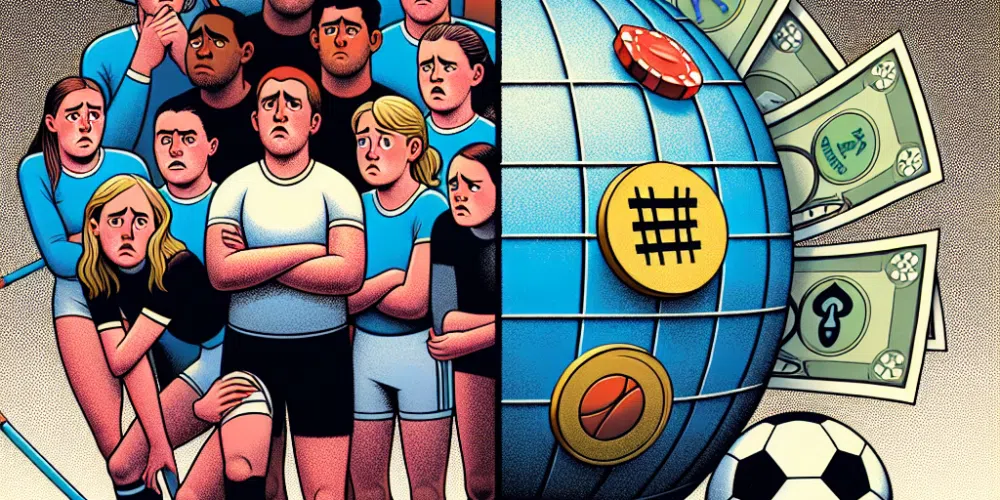In New Zealand, over 50 sporting groups have come together to oppose the Government’s proposed Online Casino Gambling Bill, warning that it could deprive grassroots sports of essential funding.
The bill, introduced by Internal Affairs Minister Brooke van Velden in June, aims to regulate the online gambling market by allowing up to 15 offshore casino operators to obtain licenses in New Zealand. Proponents argue that this move will bring much-needed oversight to an unregulated sector, enhance user protections, and generate significant tax revenue. Notably, NZD 81 million ($47.6 million) is earmarked for gambling harm prevention and treatment, according to the New Zealand Herald.
Despite these promises, there are concerns about the bill’s potential impact on local sports. Licensed online casinos would not be required to return a portion of their profits to community projects, unlike land-based venues with poker machines. Currently, pokies generate approximately NZD 170 million ($99.9 million) annually, which supports sports clubs, community organizations, health services, and arts initiatives.
Cycling New Zealand’s chairman, Martin Snedden, has emerged as a prominent critic of the bill. He emphasizes that sports clubs, already grappling with rising costs, dwindling sponsorships, and reduced municipal support, cannot risk losing such vital funding sources. Snedden stresses that previous governments upheld a “social contract” that justified gambling by reinvesting a portion of profits into local communities. He urges policymakers to ensure that online casinos adhere to similar community contribution requirements.
Academics and regional sports trusts share these apprehensions. University of Auckland senior lecturer Blake Bennett’s research highlights the existing struggles of community groups in attracting and retaining volunteers. Bureaucratic obstacles and increasing living expenses discourage participation. Bennett warns that eliminating a major funding source would accelerate club closures, decrease engagement, and widen socioeconomic disparities between affluent and less privileged areas.
In the Manawatū region, the potential repercussions are stark. Sport Manawatū CEO Kelly Shanks predicts a loss of NZD 5 million ($2.9 million) if funding from pokies declines. She underscores the importance of grants in purchasing uniforms for small towns, renting venues in rural communities, and subsidizing programs that enable thousands of children to participate in sports. Without these financial supports, families would face higher fees, which many cannot afford.
Van Velden remains steadfast in her support for the bill. She contends that New Zealanders are already betting on numerous international platforms without any regulatory safeguards. Implementing the proposed laws would enhance the safety of online gambling and ensure that companies contribute fairly to the tax system. Public submissions on the bill concluded on August 17, and Sport Manawatū is scheduled to present its arguments to Parliament on September 8.
While Van Velden argues that the bill will bring accountability to the digital gambling space and secure a steady revenue stream for government programs, critics remain unconvinced. They fear that the proposed legislation prioritizes fiscal gains over the well-being of local communities. The current system, they argue, not only sustains grassroots sports but also strengthens the social fabric by providing opportunities for youth engagement and fostering community spirit.
Proponents of the bill suggest that redirecting some of the anticipated tax revenue towards community initiatives could mitigate the negative impacts. They propose establishing a fund specifically dedicated to supporting grassroots sports and community groups, thereby ensuring that local needs continue to be met despite changes in funding streams.
Opponents, however, caution against relying solely on government-managed funds. They argue that direct contributions from gambling revenues offer a more reliable and transparent method of financing community projects. This approach, they believe, ensures that resources are allocated based on actual needs rather than being subject to political considerations.
The debate over the Online Casino Gambling Bill highlights the broader challenge of balancing economic opportunities with community responsibilities. As digital gambling becomes increasingly prevalent, policymakers face the task of creating a framework that protects vulnerable populations while harnessing the industry’s financial potential.
The outcome of this legislative process will have far-reaching implications for New Zealand’s sporting landscape, potentially reshaping the financial foundations of local clubs and community organizations. As stakeholders prepare to present their cases to Parliament, the discourse will continue to evolve, reflecting the diverse perspectives and interests at play in this complex issue.

David Garato is a luminary in gaming journalism, renowned for peeling back the curtain on the gaming world with his witty and insightful commentary. A decade into weaving stories from the pixelated edges of indie games to the expansive universes of AAA titles, David’s work is a thrilling blend of analysis and adventure. When not writing, he’s live-streaming, sharing his gaming exploits with an engaged and growing audience. David doesn’t just write about games; he lives them, making him a trusted guide in the gaming community.
















